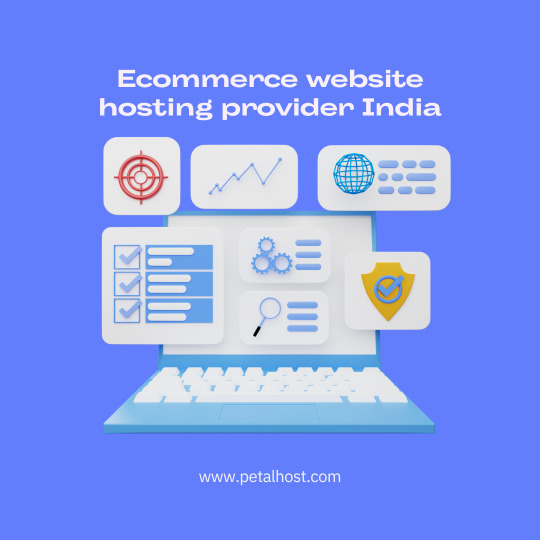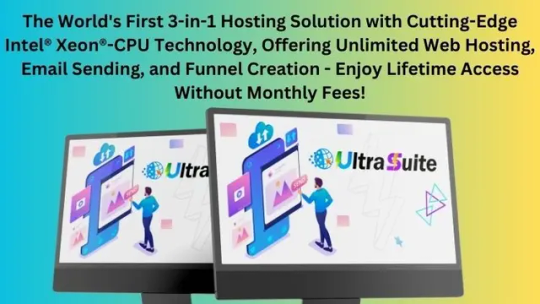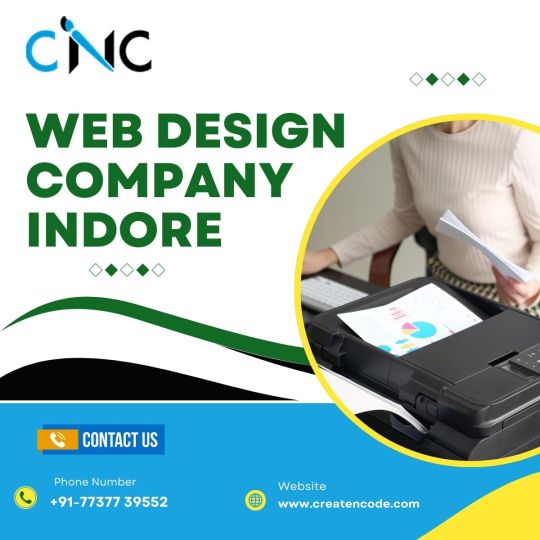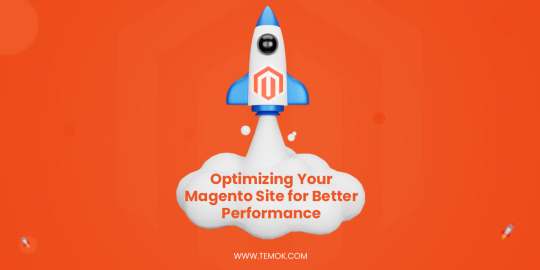#best ecommerce hosting sites
Explore tagged Tumblr posts
Text
Ecommerce Website Hosting

Ecommerce website hosting is a crucial service that provides a secure and reliable online platform for businesses to sell products or services online. It involves hosting a website on a server that is specifically optimized for e-commerce, with features such as robust security measures, high uptime, scalable resources, and efficient payment processing capabilities. E-commerce website hosting ensures that businesses can showcase their products or services to customers around the world, process transactions securely, manage inventory, and provide an intuitive shopping experience. With seamless integration of online shopping carts, payment gateways, and SSL certificates, e-commerce website hosting empowers businesses to establish a professional online presence and drive sales in the competitive digital marketplace.
#best ecommerce hosting#ecommerce hosting companies#ecommerce hosting providers#cheap ecommerce hosting#ecommerce website hosting#best ecommerce hosting sites#ecommerce web hosting#WEB HOSTING#HOSTINGSEEKERS
0 notes
Text
Dedicated Server Hosting Package - Top Performance Guaranteed

In today’s digital landscape, where speed and reliability are paramount for any business, choosing the right hosting solution is crucial. One of the most robust options available is a dedicated server hosting package. This type of hosting provides businesses with the power and control needed to handle large amounts of traffic, secure sensitive data, and run complex applications without a hitch.
Why Choose a Dedicated Server Hosting Plan?
A dedicated server hosting plan is ideal for businesses that have outgrown shared hosting due to its numerous benefits. First, it offers unparalleled performance. With dedicated hosting, you receive a server solely for your use, ensuring that your website can handle high traffic volumes and demanding applications smoothly. This exclusivity eliminates the "noisy neighbor" effect—a common issue in shared hosting where one user’s heavy usage affects others on the same server.
Second, dedicated servers provide enhanced security. Since you are not sharing the server with anyone else, the risks associated with shared hosting environments, such as cross-site contamination and IP blacklisting, are significantly reduced. Moreover, with a dedicated server, you have the complete freedom to implement security measures that fit your specific needs, from firewalls to anti-virus solutions.
Advantages of Unlimited Web Hosting Plans
While dedicated servers are a top-tier choice, another option for growing businesses is an unlimited web hosting plan. These plans are perfect for businesses looking to expand their online presence without worrying about hitting bandwidth or storage caps. Unlimited hosting plans allow you to host multiple domains, which is ideal for businesses managing several brands or marketing campaigns. They also often come with a suite of tools to help you build, manage, and optimize your website efficiently.
Whether your business requires the robust power of a dedicated server or the expansive flexibility of an unlimited hosting plan, AKL Web Host offers tailored solutions that guarantee top performance. With their state-of-the-art infrastructure and expert support, you can ensure that your website remains fast, secure, and reliably online—driving your business forward in the increasingly competitive digital marketplace.

#dedicated server hosting package#dedicated server hosting plan#unlimited web hosting plan#Unlimited cPanel Hosting#Unlimited Plesk Hosting#Unlimited Web Hosting#Windows VPS Server#Cheap Dedicated Server#Unlimited WordPress Hosting#WordPress Hosting#Unlimited cPanel SSD Hosting#Unlimited Email Hosting#Unlimited Cheap Web Hosting#Unlimited WHMCS License#Best WordPress Hosting#Cheap Windows VPS Server#Best Windows VPS Servers#Cheap WordPress Hosting#Best web hosting for ecommerce#Managed wordpress hosting services#Best dedicated hosting services for 2024#Cheap linux VPS hosting#Plesk web hosting plans#Cpanel hosting plans#Hosting with free SSL certificate#Hosting with site migration services
4 notes
·
View notes
Video
youtube
How to Fix High CPU Seconds Usage of a Wordpress Site in Siteground Hosting PART 2 - ecomhardyCheckout Part 1 of this video here; https://youtu.be/19Wa0xJFxLk Checkout the video on best security settings to set up All in one WP Security plugin here; https://youtu.be/Izb--NfPlOE Check out the detailed information on 5 steps to Fix High CPU Seconds Usage of a WordPress Site in Siteground Hosting. Go to; https://ecomhardy.com/5-ways-to-fix-high-cpu-seconds-usage-of-a-wordpress-site/ To make a website from scratch and for more eCommerce based tutorial videos, visit https://ecomhardy.com In PART 1 video, I have mentioned a few steps to improve high CPU seconds usage of WordPress website in siteground hosting. Step 1 - Choose to run a website with Ultrafast PHP is your plan have that option. Step 2 - Change PHP version to Siteground managed PHP. Step 3 - Check Traffic and Error Log under statistics data and see what sort of errors are repeated in the error log. Step 4 - First, you need to disable the script to be executed every time someone loads one of your pages. To do this, open the wp-config.php file in your main WordPress folder and add the following line before the 1C/* That 19s all, stop editing! Happy blogging. */ 1D line: define('DISABLE_WP_CRON', true); Check the below link for more information; https://my.siteground.com/support/tutorials/wordpress/real-cron-job Step 5 - Disable/Limit WordPress heartbeat using Siteground's SG Optimizer plugin. For more information, go to; https://my.siteground.com/support/tutorials/wordpress/limit-heartbeat --------------------------------------------------------------------------- Part 1- How to make a website - Buy right Domain and Hosting https://youtu.be/y-JoRxhwhE8 Go to, https://ecomhardy.com/make-a-website All the steps with useful information are provided there. Part 2- Make a website- How to install WordPress on your website; https://youtu.be/t0E7_rp8LrY Bonus video: To know How to point the domain name servers to your hosting, check out the link; https://youtu.be/6UNA7AY-lxw Part 3 - How to install a theme on WordPress. https://youtu.be/inO0H4LPpNQ Thanks for watching. Consider subscribing.
#wordpress#woocommerce#elementor#dropshipping#ecommerce#ecomhardy#wordpress tutorial for beginners#wordpress tutorial#how to fix high cpu usage in siteground#high cpu seconds? siteground steps up to fix wordpress problems#how to fix high cpu seconds usage in siteground hosting#how to fix high cpu seconds usage on a siteground hosting site#the best way to fix high cpu seconds usage of a wordpress site#how to fix high cpu seconds usage of a wordpress site in siteground hosting?
0 notes
Text
Buy Netherlands dedicated server
Top Reasons to Buy a Netherlands Dedicated Server for Your Growing Business
When your business starts gaining traction, it’s like watching your favorite sports team rise to the playoffs—exciting but nerve-wracking. That’s when you realize it’s time to level up your hosting game. Enter: Netherlands dedicated servers—the secret weapon that’s turning heads in the world of online business.
If you’re wondering why the Netherlands is a hotspot for dedicated hosting, buckle up. I’m here to walk you through why this option could be the best investment for your business growth. Spoiler alert: It’s not just about the servers; it’s about what they can do for you.

Why a Dedicated Server Netherlands Is a Game-Changer
Dedicated servers are like having your own private parking spot in a crowded city—nobody else can use it, and you have all the space you need. Unlike shared hosting or VPS hosting, a dedicated server means the entire server is yours.
Now, when you pick the Netherlands as your hosting location, you unlock perks that go beyond the basics. Here’s why it’s worth the hype:
Lightning-Fast Connectivity for Global Reach
The Netherlands is nicknamed the “Digital Gateway to Europe” for a reason. It’s one of the most connected countries in the world, and it boasts cutting-edge infrastructure like the Amsterdam Internet Exchange (AMS-IX).
This setup means your website loads faster, your data gets transferred quicker, and you get super low latency—especially when targeting customers in Europe, the USA, and beyond.
Example:
Imagine running an eCommerce store targeting both U.S. and European audiences. With a Netherlands dedicated server, your customers in New York or California won’t have to wait for ages for your site to load. That’s a win for their patience—and your sales!
Data Privacy Laws That Have Your Back
In the U.S., we’re big on privacy, but let’s face it—data regulations can be a bit murky. Over in the Netherlands, the General Data Protection Regulation (GDPR) takes data security to the next level.
With a dedicated server Netherlands, you can reassure your customers that their sensitive information is protected by some of the strictest data privacy laws in the world.
Real Talk:
Think about a law firm or a healthcare company storing client data. Hosting in the Netherlands gives them an edge in terms of compliance and peace of mind.
Superior Hardware and Premium Uptime
Dutch hosting providers don’t mess around when it comes to hardware. You’ll find top-tier equipment from brands like DELL, HP, and Intel powering these servers.
Combine that with redundant power supplies, cooling systems, and network connections, and you’re looking at an impressive uptime guarantee—often 99.99%.
Why This Matters:
For small businesses, every second of downtime can mean lost sales or missed opportunities. A reliable server ensures your website stays up and running, no matter what.
Scalability That Matches Your Growth
Here’s the deal: businesses don’t grow at a steady pace—they explode, especially when you’re doing something right. A Netherlands dedicated server is scalable, so you can upgrade your resources without downtime.
Scenario:
Let’s say your website traffic doubles after a Black Friday sale. With dedicated hosting in the Netherlands, you can seamlessly scale up your server resources to handle the surge without losing customers.
Cost-Effective Hosting Options
You’d think all these perks would break the bank, right? Nope! Netherlands dedicated servers often offer better pricing compared to U.S.-based counterparts, thanks to lower operational costs and competitive markets.
When you consider what you’re getting—privacy, speed, reliability—it’s a no-brainer for businesses looking for value.
Pro Tip:
Many providers offer customized plans, so you’re not paying for resources you don’t need.
24/7 Support That Actually Helps
Nobody wants to deal with tech problems alone. Dutch hosting companies pride themselves on stellar customer support, with experts available around the clock to solve issues.
Example:
Picture this: It’s midnight in New York, and your server crashes. With 24/7 support from a Netherlands provider, you can have someone troubleshoot the issue instantly—saving you stress and potential losses.
Green Hosting for Eco-Conscious Businesses
Sustainability is becoming a bigger priority for businesses, and Dutch data centers are leading the charge with eco-friendly practices. Powered by renewable energy and optimized for energy efficiency, they offer hosting solutions you can feel good about.
Bonus:
Eco-friendly hosting can be a unique selling point for your brand, especially if your audience values sustainability.
How to Choose the Right Netherlands Dedicated Server
So, you’re sold on the idea. Now what? Here are a few tips to pick the perfect hosting plan:
Know Your Needs: Understand your traffic levels, storage requirements, and budget.
Check Location Benefits: If you’re targeting U.S. and European customers, opt for a server with low latency for both regions.
Look for Extra Features: Managed services, DDoS protection, and backups can save you time and hassle.
Read Reviews: See what other businesses are saying about the provider.
SEO Benefits of a Netherlands Dedicated Server
If you’re gunning for top spots on Google, a Netherlands dedicated server can help. Faster load times and enhanced security mean better rankings—simple as that. Plus, having a server in Europe can boost your SEO for European search engines.
Quick Tip:
Optimize your content for local keywords (like “buy Netherlands dedicated server”) to capture the attention of your audience.
A Real-World Success Story
Take, for example, a mid-sized SaaS company from Chicago that switched to a Netherlands dedicated server. Not only did their page load times drop by 40%, but their European customer base grew by 25% within six months.
That’s the power of hosting smarter.
Conclusion: Why You Should Buy Netherlands Dedicated Server
At the end of the day, investing in a dedicated server Netherlands is like upgrading from a beat-up sedan to a luxury SUV—it’s smoother, faster, and way more reliable. Whether you’re running a blog, an online store, or a global enterprise, this hosting option can give you the speed, security, and support you need to thrive.
Your Next Step:
Ready to take the plunge? Buy Netherlands dedicated server today and watch your business soar. Trust me—it’s a decision your future self will thank you for.

FAQ
What Is a Netherlands Dedicated Server, and How Can It Help My Business?
A Netherlands dedicated server is a hosting solution located in the Netherlands that offers an entire server exclusively for your business. Unlike shared hosting, it provides enhanced performance, security, and scalability. With low latency and access to top-tier infrastructure, it’s ideal for businesses targeting customers in Europe, the U.S., and beyond.
Why Should I Choose a Dedicated Server in the Netherlands Over a U.S.-Based One?
Choosing a dedicated server Netherlands gives you advantages like lightning-fast speeds, strict GDPR-compliant data privacy laws, and access to one of the world’s best digital infrastructures (AMS-IX). While U.S. servers are great, Netherlands servers excel in providing global reach and eco-friendly hosting solutions.
Is a Netherlands Dedicated Server Suitable for Small Businesses?
Absolutely! Small businesses benefit greatly from dedicated servers in the Netherlands due to their cost-effectiveness and scalability. These servers are perfect for handling traffic spikes, ensuring uptime, and offering robust security measures, all while staying budget-friendly.
How Can Netherlands Dedicated Servers Improve My Website’s SEO?
Netherlands dedicated servers boost SEO by delivering faster load times, improved user experiences, and enhanced security. If your target audience includes European customers, hosting in the Netherlands can give your website an edge in regional search engine rankings.
Are Netherlands Dedicated Servers Eco-Friendly?
Yes, many Dutch hosting providers use green energy and optimize data centers for energy efficiency. This makes Netherlands dedicated servers a great choice for businesses prioritizing sustainability while maintaining top-notch hosting performance.
2 notes
·
View notes
Text
Yo, what's up guys, it's your boy Karl, and today I want to talk about Cloudways - the cloud hosting platform that's taking the internet by storm.
First things first, let me tell you what Cloudways is all about. Essentially, it's a cloud hosting provider that offers managed hosting solutions for businesses of all sizes. Whether you're running a small blog or a massive eCommerce store, Cloudways has got you covered.
So, what are the benefits of using Cloudways? Well, let me break it down for you:
Lightning-fast speeds: Cloudways uses the latest in server technology to ensure that your website loads lightning-fast. That means fewer frustrated users and more happy customers.
Easy to use: One of the great things about Cloudways is that it's incredibly easy to use. Even if you're not a tech whiz, you'll be able to navigate the platform and get your site up and running in no time.
Fully managed hosting: With Cloudways, you don't have to worry about managing your server. That's because Cloudways takes care of everything for you. From server updates to security patches, they handle it all.
Affordable pricing: Despite offering some of the best hosting services around, Cloudways is surprisingly affordable. You won't have to break the bank to take advantage of their world-class hosting.
Great customer support: If you do run into any issues, Cloudways has an excellent customer support team that's available 24/7 to help you out. They're knowledgeable, friendly, and always ready to lend a hand.
Overall, Cloudways is an excellent choice for anyone looking for a reliable, affordable, and easy-to-use hosting solution. And the best part is, you can test out the platform for yourself by clicking on this link: . So what are you waiting for? Give Cloudways a try and see for yourself why it's quickly becoming the go-to hosting platform for businesses around the world.
{LINK}
115 notes
·
View notes
Text

Petalhost: Trusted Ecommerce Website Hosting Provider in India
Looking for the best ecommerce website hosting provider in India? Petalhost offers tailored hosting solutions for online stores of all sizes. With blazing-fast servers, unlimited bandwidth, and 99.9% uptime, your ecommerce site will deliver a seamless shopping experience. Petalhost provides one-click installation for popular ecommerce platforms like WooCommerce, Magento, and PrestaShop, along with free SSL certificates to secure transactions. Benefit from 24/7 customer support and advanced security features that protect your online store from threats. Choose Petalhost to power your ecommerce success and take your business to new heights with reliable and affordable hosting solutions.
2 notes
·
View notes
Text
UltraSuite Review: Unlimited Hosting, Email & Funnels platform in 2025

UltraSuite is a lifetime-access platform that offers unlimited website hosting, email sending, and funnel creation for a one-time fee. It provides high-speed servers, SSL security, and 24/7 support, saving users from monthly costs while supporting business growth.
You're not alone if you're tired of paying monthly fees for website hosting, email, and funnels. Many people wish for a simple solution that offers everything without constant bills. This guide will show you how to get unlimited hosting, email, and funnels for a one-time price. It's easy to set up, saves you money, and allows you to grow your online presence without limits. Let's dive in.
What Is Unlimited Hosting, Email, and Funnels?
Imagine having as many websites, email accounts, and sales funnels as you want without paying each month. That’s the power of unlimited hosting, email, and funnels.
Most companies charge monthly or yearly fees for hosting your website, sending emails, and building sales funnels. However, with a solution like UltraSuite (a popular option on the market), you can pay once and use it forever. You get:
Unlimited website hosting: Host any websites, domains, and pages.
Unlimited email sending: Send emails without limits or extra charges.
Unlimited funnels: Build as many funnels as you need to sell products or engage visitors.
Get Access Now
How Does UltraSuite Work?
These services use powerful, high-speed servers, usually with Intel® Xeon® CPUs, allowing fast performance and secure hosting. The best part? There are no monthly charges! You pay once and get full access for life.
Why It’s a Game-Changer
With traditional hosting and email services, you’re often limited to a certain number of websites, pages, and emails. Unlimited hosting, email, and funnels let you:
Save money: No monthly or yearly fees.
Expand freely: Add more websites, email campaigns, or funnels anytime.
Key Benefits of UltraSuite
Choosing unlimited hosting, email, and funnels brings many benefits, especially for small business owners, freelancers, or anyone looking to cut costs. Here are the main advantages:
Cost Savings
You know how expensive it can get if you’re using platforms like GoDaddy, HostGator, or ClickFunnels. Monthly payments add up, especially as your business grows. With a lifetime option, you could save thousands of dollars each year.
Reliability and Speed
Good platforms for unlimited hosting, email, and funnels, such as UltraSuite, provide reliable servers with fast speeds. They often guarantee 99.999% uptime, which means your website will be available almost all the time. This is critical if you’re running an online business or eCommerce site where downtime can cost you sales.
Full Control
With unlimited hosting and email, you have control over your resources. There are no limitations on the number of websites, pages, or emails you can manage. Any hidden fees or usage caps do not restrict you, so you can scale your business as needed.
Easy Setup and Use
Many unlimited hosting solutions are built to be user-friendly, with simple control panels that even beginners can navigate. You don’t need to be a tech expert to set things up. Features like one-click WordPress installation make it easy to launch websites fast, while built-in email tools simplify your communication.
Features of UltraSuite
If you’re considering an unlimited hosting solution, here are some essential features to look for. These will help ensure your chosen platform is reliable and secure and offer the tools you need to grow your online presence.
High-Speed Hosting and Unlimited Storage
A good unlimited hosting provider offers high-speed servers that keep your websites loading quickly. Platforms with SSD servers (Solid State Drives) generally perform faster than older HDD technology.
Unlimited storage means you can host all your website files, images, and videos without worrying about hitting a limit. This is a huge benefit for content creators, eCommerce sites, and bloggers because it lets you grow without extra costs.
Built-in Security and SSL Certificates
Security is essential when running a website, especially when handling sensitive information like customer data. Look for platforms that include SSL certificates for all your domains at no extra cost. SSL encryption helps protect data and builds trust with visitors, which is especially important for online stores and business websites.
Some platforms offer built-in malware protection to protect your website from hackers. Regular backups are also a good feature, protecting your data even if something goes wrong.
Easy-to-Use Control Panel
A user-friendly control panel is key for managing your website, email, and funnel settings. Most unlimited hosting platforms provide an easy control panel (like cPanel) where you can:
Set up new websites or domains
Create personalized email accounts
Install apps like WordPress with just one click
A simple control panel makes it easy for beginners to navigate the platform and manage their resources without needing tech skills.
Unlimited Email Sending with Automation
Unlimited email is another valuable feature of these platforms. With traditional email marketing tools, there’s usually a cap on the number of emails you can send, or you pay more as your list grows. Unlimited email solutions let you send emails without worrying about limits.
Some platforms offer basic email automation, like setting up auto-responders or email campaigns. This is great for keeping in touch with your audience, promoting your services, or updating customers on your latest products.
Funnel Builders for Sales and Marketing
An effective funnel builder lets you create sales funnels—the steps a customer takes from visiting your site to purchasing. Many unlimited hosting solutions include funnel builders that allow you to:
Design landing pages and product pages
Set up checkout pages for payments
Track customer interactions and conversions
An unlimited funnel builder is beneficial for marketers, as it allows you to set up as many funnels as you need to drive traffic, capture leads, and increase sales. This feature can save you money, as you won’t need separate funnel software like ClickFunnels.
24/7 Customer Support
Good customer support is essential, especially if you’re not tech-savvy. Many unlimited hosting platforms provide 24/7 technical support to help you with any issues. Whether you need help migrating a website, setting up your email, or troubleshooting a funnel, responsive support can save you time and frustration.
How to Set Up
Step 1: Choose a Reliable Platform
The first step is to select a platform that offers reliable, unlimited hosting, email, and funnel options. Look for a platform with positive reviews, a good track record, and the essential features discussed earlier. UltraSuite is an example that provides a one-time payment option, saving you from ongoing costs.
Step 2: Sign Up and Set Up Your Account
Once you’ve chosen a platform, sign up to create an account. You may need to provide basic details, such as your name, email, and payment information. After signing up, you can access your control panel to start setting up your services.
Step 3: Add Your Domain and Set Up Hosting
With most unlimited hosting platforms, you can add your existing domain or purchase a new one. Here’s how to set it up:
Add your domain: Go to the domain settings in the control panel, then add or connect your domain.
Select your hosting type: Some platforms let you choose between different hosting setups, such as WordPress or cloud hosting. Pick the option that suits your needs.
One-click installation: Most platforms offer one-click installation for users who want to set up WordPress or other applications. This lets you set up your website without technical steps.
Step 4: Set Up Email Accounts
Go to the email section: Find the email setup section in your control panel.
Create new accounts: Enter the username and password you want to create.
Set up email forwarding or auto-responders if needed.
Step 5: Build Funnels to Drive Sales
Choose a template: Select a funnel template, such as one for lead capture or product sales.
Customize the pages: Add your content, images, and branding to each funnel page.
Connect to payment options: If your funnel includes a sales page, set up payment options to accept online payments.
Launch and track performance: Publish your funnel and monitor its performance through analytics in your control panel.
With these steps, you can set up as many funnels as needed to support your marketing efforts, drive sales, or capture leads.
Step 6: Optimize and Maintain Your Services
Once everything is set up, it’s important to optimize your hosting, email, and funnels. Here are some quick tips:
Optimize for speed: Use tools to check your website speed and adjust as needed.
Update your content: Keep your funnels and website content fresh to maintain customer interest.
Monitor uptime: Regularly check that your websites and emails are running smoothly.
With regular maintenance, you’ll ensure that your unlimited hosting, email, and funnels continue to deliver great results for your business.
Key Takeaways:
UltraSuite: Provides unlimited hosting, email, and funnels with a one-time fee, along with daily backups and SSL certificates included. No additional software or add-ons are required, making it a straightforward, cost-effective choice.
GoDaddy & HostGator: These platforms require monthly payments, and most features like SSL and backups are add-ons. There are limits on the number of websites and storage, and no funnel options are included.
ClickFunnels: Primarily a funnel-building tool with some limited hosting options. It’s costly but may suit users focused solely on funnels. However, additional software is required for full hosting and email services.
AWeber: Great for email marketing but lacks hosting and funnel options, so you’d need additional platforms to handle these functions.
Why Should You Join UltraSuite?
Choosing an unlimited hosting, email, and funnel platform provides several key benefits:
Cost Savings: A one-time payment eliminates ongoing monthly fees, which can add up to hundreds or even thousands of dollars per year.
Flexibility to Grow: You can create multiple websites, email accounts, and funnels without worrying about hitting usage limits or facing additional fees as your business expands.
Peace of Mind: Knowing your hosting, email, and funnels are all managed on a secure platform lets you focus on growing your business instead of worrying about recurring bills or restrictions.
10 free Bonus
Free Membership: Join our Facebook Group for help!
Live Training: Learn secrets to make a lot of money!
Exile Profit: Make $33 for every picture you upload!
Kingpin: Get lots of visitors with our easy tools!
VERVE: Find a way to earn $500 an hour using LinkedIn!
NFT Finder: Find and sell cool NFTs quickly!
Thumbnail Creator: Make eye-catching pictures with just 3 clicks!
AI Lead Gen: Email marketing for life with ChatGPT!
AI CB Profits: Get free traffic and earn with ClickBank!
GoogAi: Get quick answers and help from Google’s AI!
Who is Ultra Suite for?
Internet Marketers: Save money for your business with good hosting.
Efficiency Seekers: Save time and money with great hosting.
Privacy Advocates: Keep your data and website safe and secure.
Competitive Players: Make fast websites to stay ahead of others.
Cost-Conscious Owners: Spend less and earn more while keeping quality.
Traffic Generators: Host many websites for high earnings without extra fees.
Diverse Entrepreneurs: Perfect for all kinds of needs with lifetime hosting.
Security-Minded: Stay safe from hackers and viruses.
Reputation Builders: Good speed and uptime help your website's reputation.
FAQ
Will I get support for UltraSuite?
Yes, It provides 24/7 support to ensure you get the best results. A dedicated team is always available to help solve any issues and guide you.
Are there any monthly fees?
UltraSuite offers a one-time payment option, giving you lifetime access to all features. This exclusive offer is available before we switch to a monthly subscription model, so act fast to secure your deal!
Is there any money-back guarantee?
Yes, UltraSuite comes with a 30-day money-back guarantee. If you're unsatisfied, let us know, and we'll refund you—no risk when you act now.
Do you update your product and improve it?
Absolutely! UltraSuite is continuously updated with new features and improvements to ensure you have the best experience and stay ahead of the competition. We're committed to keeping UltraSuite at the cutting edge of performance.
Is UltraSuite unlimited?
Yes, UltraSuite providers offer unlimited hosting, allowing you to create as many websites, domains, and pages as needed.
Can I use unlimited email sending for marketing?
Yes, unlimited email platforms typically allow you to send marketing emails without extra fees. However, if you're sending a high volume of emails, it's essential to use a platform with good email deliverability to avoid your emails being marked as spam.
Do I need technical skills to set up unlimited hosting and funnels?
No, most unlimited hosting platforms are designed to be user-friendly, with easy control panels and one-click setups. Thanks to features like one-click WordPress installation and simple email setup, even beginners can manage these services without technical skills.
What are the benefits of unlimited funnels?
Unlimited funnels allow you to create as many sales processes as you need. It is useful for marketing, lead generation, and product sales.
My Recommendation
Choose an unlimited platform like UltraSuite for a budget-friendly and flexible solution. UltraSuite offers essential features like high-speed hosting, unlimited email, and built-in funnel tools, all accessible with a one-time payment.
This recommendation is especially suitable for:
Business owners who want to reduce expenses
Freelancers who manage multiple clients or projects
Content creators who need unlimited storage and speed
With unlimited hosting, email, and funnels, you get the tools you need to grow your online presence without the financial strain of monthly fees. Visit Here For More Information
2 notes
·
View notes
Text
How Can a Magento Webstore Be Designed and Hosted for Success?
It takes more than simply beautiful design to create a profitable Magento online store. Making sure your webshop is both functional and scalable requires taking numerous important steps, from selecting the best Magento Hosting provider to collaborating with an experienced Magento Webshop Bouwer. Let's look at some effective ways to create and manage a Magento web store that has all the features and tools you require.
Why Does Your Webshop Need Magento Hosting? Choosing an appropriate Magento hosting provider is one of the initial stages involved in developing an online store for Magento Webshops Bouwen. A site's speed, dependability, and general performance are all determined by its hosting. Your online store can manage heavy traffic without sacrificing speed if it has high-quality hosting. Selecting a hosting company that is optimized for Magento is crucial since it ensures that your online store operates efficiently, especially during periods of high traffic.
Why Hyvä Magento Themes Are Beneficial Hyva Magento themes may completely revamp your online store because design is so important to the user experience. Modern designs and faster loading times are features of Hyvä's performance-optimized, lightweight themes. Integration of a Hyvä Magento theme guarantees improved performance on desktop and mobile platforms in addition to visual appeal for companies looking to provide a remarkable online buying experience.
How to Design an Expert Magento Logo
Establishing your business identification is aided by a polished and unique Magento Logo. A strong logo may convey your company's beliefs and mission to potential customers right away on a Magento Website. Make sure that the Magento logo you choose fits with your brand's visual language and leave a lasting impact on potential clients, whether you choose to use a graphic designer or a logo design tool. Utilizing a Magento Developer
Having a knowledgeable Magento Developer on staff is crucial when creating intricate online stores. From backend configuration to feature customization of your web store, everything may be handled by a professional developer. Search engine optimization, speed, and security are some things that Magento Ontwikkelaar make sure of.
Justifications for Hiring a Magento Expert Employing a Magento Specialist is a wise decision for companies looking to get the most out of their online store. The platform configuration, performance optimization, and problem-solving skills of a Magento specialist are all highly skilled. The proper operation of your webshop is guaranteed by their comprehensive understanding of the Magento ecosystem. Magento Webshop Laten Bouwen can take your eCommerce store to the next level by helping you choose the best extensions and fine-tune the UI.
Combining Magento 2 and Mollie Integrating Mollie Magento2 into your online store can provide smooth payment processing. International businesses find Mollie, a widely used payment gateway, to be perfect as it supports a multitude of payment methods and currencies. Assuring a seamless checkout process that promotes conversions, you may provide clients safe and practical payment methods by integrating Mollie Magento 2.
2 notes
·
View notes
Text
How to Increase Online Sales for Your eCommerce Store
Running an eCommerce store can be highly rewarding, but increasing online sales often requires strategic efforts. Here are ten detailed strategies to help you boost your online sales and grow your business.
1. Optimize Your Website
User-Friendly Design A user-friendly design is crucial for keeping visitors on your site and guiding them towards making a purchase. Simplify navigation with clear menus and categories. Use a clean layout with plenty of white space to avoid overwhelming visitors. Ensure that buttons and calls-to-action (CTAs) are easily noticeable and intuitive.
Mobile Responsiveness Over 50% of online shopping is done on mobile devices. Ensure your website adjusts smoothly on all device sizes. This means using a responsive design that automatically resizes and reorganizes content based on the screen size. Test your site on various devices to ensure a seamless mobile experience.
Fast Loading Times Slow websites frustrate users and can increase bounce rates. Aim for page load times of under three seconds by optimizing images, leveraging browser caching, and using a reliable hosting service. Use tools like Google Page Speed Insights to identify and fix performance issues.

2. Improve Product Descriptions
Highlight Benefits Effective product descriptions do more than list features. They explain how the product solves a problem or enhances the customer’s life. Use storytelling techniques to make descriptions engaging and relatable.
Use High-Quality Visuals Include multiple high-resolution images and videos showing the product from different angles and in use. Visual content can significantly impact purchasing decisions by providing a better understanding of the product.
SEO Optimization Incorporate relevant keywords naturally within the descriptions to improve search engine rankings. This helps potential customers find your products more easily through search engines. Use keyword research tools to find the best keywords for your products.
3. Enhance Your SEO
Keyword Research Identify and use relevant keywords in your product titles, descriptions, and meta tags. Effective keyword usage can improve your search engine rankings and drive more organic traffic to your site.
Content Creation Regularly publish blog posts, guides, and other content that provides value to your customers and improves your SEO. High-quality content can attract and engage visitors, encouraging them to explore your products.
Technical SEO Ensure your website has a clean structure, fast load times, and is indexed correctly by search engines. Technical SEO improvements can enhance your site's visibility and performance in search engine results. Continue Reading... Click the link below. https://www.bharatgo.com/blogs/Boost-Sales-With-Proven-Strategies

3 notes
·
View notes
Text
Best Web hosting for Small Business Ecommerce
A service known as web hosting enables people and businesses to publish their websites online. Your website files are stored on a server that you rent space from when you buy a web hosting service. As a result, people can visit your website by using its domain name. Different Web Hosting Types Shared Hosting: A single server and its resources are used by several websites. This is a reasonably priced choice ideal for small companies with light traffic.
Hosting on a virtual private server (VPS): VPS hosting offers a dedicated portion of server resources while sharing the server with other customers, acting as a medium ground between shared and dedicated hosting. This is the best choice for expanding e-commerce companies.
Dedicated Hosting: Maximum performance and control are available when a dedicated server is fully devoted to a single website. Large, traffic-driven e-commerce enterprises are the ideal candidates for this choice. Cloud hosting: This kind of hosting offers scalability and dependability by using several servers to host websites. Cloud hosting is appropriate for companies with varying traffic volumes. Managed WordPress Hosting: This hosting choice provides optimum speed, security, and assistance for
WordPress users. It is specifically made for WordPress websites. Selecting the best web hosting for small company ecommerce website is an important choice that affects the functionality, security, and user experience of your website. Companies that cater to small e-commerce enterprises, such as Bluehost, SiteGround, A2 Hosting, InMotion Hosting, and Shopify, provide reliable solutions.
Think about things like speed, security features, scalability, customer service, and e-commerce-specific features when choosing a web hosting company. To choose which provider is the greatest fit for your company, do some research on them and read reviews. For startups with little traffic, shared hosting could be a good option for small company e-commerce sites. However, for improved performance and scalability as your business expands, think about switching to cloud or VPS hosting.
E-commerce success is mostly dependent on website speed. Websites that load slowly may have higher bounce rates and lower revenues. Retaining consumers requires investing in a dependable hosting service with quick loading times.
Beyond just appearances, a genuinely excellent web design company delivers.
It's an amalgam of science and art, where technical mastery and inventiveness collide. The following characteristics of an elite Indore web design firm:
User Experience (UX) Focus: The user experience is given top priority on a well-designed website. Seek out businesses that prioritize quick loading speeds, easy-to-use interfaces, and intuitive navigation.
Technical Proficiency: It is imperative to possess a solid foundation in HTML, CSS, JavaScript, and related frameworks. They must to be skilled in creating mobile-friendly websites that work well on all platforms.
Design Aesthetic: A website that is visually pleasing leaves a lasting impact. The business ought to have a talented design staff that can produce eye-catching images consistent with your brand identity.
With more businesses providing web design services, the web design company Indore has grown significantly in the last several years. This expansion can be ascribed to the city's supply of qualified workers as well as the growing need for internet presence among companies of all kinds.
Indore web design businesses stay abreast of emerging technology and trends to guarantee that their clients' websites maintain their competitiveness and relevance in the marketplace. To achieve superior outcomes, these organizations are investing in state-of-the-art tools and strategies, ranging from AI-powered personalization to responsive design.

#Best Web hosting for Small Business Ecommerce#website#best website designing company in indore#website design#web design#web development#digital marketing#seo services#web design company
2 notes
·
View notes
Text
The 10 Best Cloud Hosting Providers (June 2024)
New Post has been published on https://thedigitalinsider.com/the-10-best-cloud-hosting-providers-june-2024/
The 10 Best Cloud Hosting Providers (June 2024)
Cloud hosting has transformed the way businesses manage their online presence by providing scalable, flexible, and reliable hosting solutions. Unlike traditional hosting, cloud hosting uses multiple servers to distribute resources, ensuring high availability and superior performance. Choosing the best cloud hosting provider is essential for businesses seeking robust performance, security, and the flexibility to efficiently handle varying resource demand as your website grows. This guide highlights the best cloud hosting providers, helping you find the ideal solution for your needs.
What is Cloud Hosting and How Does it Work?
Cloud hosting is a type of web hosting that uses multiple servers to balance the load and maximize uptime. Unlike traditional hosting solutions that rely on a single physical server, cloud hosting utilizes a network of interconnected servers to store and manage data. This setup ensures that resources are dynamically allocated across the servers, providing enhanced flexibility, scalability, and reliability.
In cloud hosting, websites and applications are hosted on a cluster of servers, often referred to as the “cloud.” When a user accesses a website, the request is distributed across multiple servers, ensuring that no single server becomes a bottleneck. This distribution allows for better handling of traffic spikes and provides a more consistent performance, even during high demand periods.
One of the key benefits of cloud hosting is its scalability. Users can easily scale their resources up or down based on their needs, without experiencing downtime or performance issues. This makes cloud hosting ideal for businesses that experience variable traffic patterns or are planning for growth. Additionally, cloud hosting typically includes features such as automated backups, disaster recovery, and enhanced security measures, ensuring that data is protected and easily recoverable in case of an emergency.
Who is Cloud Hosting For?
Cloud hosting is designed to cater to a wide range of users, from individual developers to large enterprises, offering scalability, flexibility, and robust performance. Here are some of the key audiences who can benefit significantly from cloud hosting:
Growing Businesses and Startups
Scalability and Flexibility: Startups and growing businesses often experience fluctuating traffic and require a hosting solution that can scale resources up or down based on demand. Cloud hosting provides this flexibility, allowing businesses to pay for only what they use and scale effortlessly as they grow.
E-commerce Websites
High Performance and Reliability: E-commerce sites require high uptime and fast load times to ensure a smooth shopping experience for customers. Cloud hosting offers excellent performance and reliability, which are crucial for online stores to prevent downtime and maintain customer satisfaction.
Ecommerce stores are also prone to traffic spikes especially for brands selling seasonal products – e.g: Christmas gifts shops will have peak sales towards the end of the year. A cloud hosting plan allows you to scale easily and pay only for the resources you nees.
Developers and Tech-savvy Users
Customization and Control: Developers and tech-savvy users benefit from the control and customization options that cloud hosting provides. With root access and the ability to configure server environments, they can tailor the hosting setup to meet specific application requirements.
Enterprises and Large Organizations
Robust Infrastructure: Large organizations with complex infrastructure needs require a robust and scalable hosting solution. Cloud hosting offers the necessary resources and reliability to support enterprise-level applications, ensuring business continuity and data integrity.
Educational Institutions and Research Organizations
Resource-intensive Applications: Educational and research institutions often run resource-intensive applications and simulations. Cloud hosting provides the computational power and storage needed for these applications, along with the ability to handle large datasets.
SaaS Providers
High Availability and Scalability: Software as a Service (SaaS) providers need hosting solutions that offer high availability and the ability to scale quickly to accommodate a growing user base. Cloud hosting delivers these capabilities, ensuring their applications remain accessible and perform excellently.
These Are The Very Best Cloud Hosting Providers
Cloudways stands out as a leading managed cloud hosting platform, offering exceptional flexibility and performance.
Known for its exceptional performance optimization tools, Cloudways ensures your website runs smoothly and efficiently. Users benefit from features such as automated backups, staging environments, and advanced caching mechanisms. Additionally, Cloudways offers 24/7 expert support to help you tackle any issues promptly.
It allows users to deploy applications across multiple cloud infrastructures, including AWS, Google Cloud, DigitalOcean, Vultr, and Linode.
Cloudways Unique Features:
Cloudways excels with its managed services, providing a user-friendly platform that simplifies server management. Key features include 1-click server deployment, automated backups, and advanced caching mechanisms like Varnish, Memcached, and Redis.
Why you should choose Cloudways:
Flexible server management: Choose from multiple cloud providers and easily scale resources.
Excellent performance and uptime: High-speed performance with optimized stack and SSD-based servers.
Robust security measures: Regular security patches, dedicated firewalls, and SSL certificates.
Cloudways is the best overall choice for cloud hosting, offering unmatched flexibility, performance, and managed services.
Read Review →
Visit Cloudways →
Hostinger is renowned for its affordable cloud hosting solutions, making it an excellent choice for individuals and small businesses looking for cost-effective yet powerful hosting.
With its intuitive control panel and robust performance, Hostinger is perfect for users seeking budget-friendly yet reliable cloud hosting solutions. Hostinger’s commitment to affordability does not compromise the quality, making it an excellent choice for small businesses and individuals alike.
Hostinger Unique Features:
Hostinger provides a balance of performance and affordability, featuring a custom control panel, daily backups, and a 99.9% uptime guarantee. Their cloud plans also include a dedicated IP and resources.
Why you should choose Hostinger:
Very affordable pricing: Competitive rates for cloud hosting plans.
User-friendly control panel: Custom-built control panel designed for ease of use.
Decent speed and uptime: Reliable performance with adequate speed for most applications.
Hostinger is ideal for budget-conscious users seeking reliable cloud hosting without compromising on essential features.
Read Review →
Visit Hostinger →
3. SiteGround (Best customer support)
SiteGround is well-regarded for its exceptional customer support and robust cloud hosting solutions. It offers scalable and fully managed cloud hosting, perfect for growing businesses.
Their cloud hosting plans are powered by Google Cloud, ensuring top-notch performance and reliability. SiteGround provides automatic daily backups, a free CDN, and advanced security solutions. Their support team is available 24/7 via phone, chat, and ticket system, ensuring that you receive timely and knowledgeable assistance whenever needed.
SiteGround Unique Features:
SiteGround’s standout features include fully managed hosting, automatic scaling, and daily backups. They provide a dedicated support team available 24/7 via phone, chat, and ticketing systems.
Why you should choose SiteGround:
Outstanding customer support: Highly responsive and knowledgeable support team.
Scalable resources: Easily adjust CPU, RAM, and storage as needed.
Enhanced security features: AI anti-bot system, daily backups, and free SSL certificates.
SiteGround excels in customer support, making it the best choice for users who prioritize responsive and effective assistance.
Read Review →
Visit SiteGround →
Bluehost is ideal for beginners due to its user-friendly interface and seamless integration with popular platforms like WordPress. Their cloud hosting plans offer enhanced performance, scalability, and security features.
Bluehost provides a straightforward setup process, making it easy for new users to get started. Additionally, they offer 24/7 customer support and a range of helpful resources to guide you through your hosting journey.
Bluehost Unique Features:
Bluehost’s cloud hosting features include easy scalability, resource monitoring, and seamless integration with various CMS platforms, especially WordPress. Their enhanced cPanel provides a simple and intuitive user interface.
Why you should choose Bluehost:
Easiest to use: Beginner-friendly interface and straightforward setup.
Reliable performance: Solid uptime and load speeds.
Comprehensive support: 24/7 support with extensive documentation and tutorials.
Bluehost is the perfect choice for beginners, offering an intuitive interface and strong performance at an affordable price.
Read Review →
Visit BlueHost →
ScalaHosting is known for its security-centric approach to cloud hosting, offering a range of features designed to protect users’ data and applications.
ScalaHosting is known for its focus on security, offering robust cloud hosting solutions that prioritize the safety of your data. . Their proprietary SPanel ensures easy and secure management, while the SShield security system offers real-time monitoring and protection against cyber threats. ScalaHosting’s cloud plans include free daily backups, a free CDN, and fully managed services. Their commitment to security and performance makes them an excellent choice for businesses looking to protect their online presence.
ScalaHosting Unique Features:
ScalaHosting provides innovative security features such as SShield real-time cybersecurity protection and free SPanel control panel. They also offer daily backups and free SSL certificates to enhance security.
Why you should choose ScalaHosting:
Most secure: Advanced security features like SShield and daily backups.
User-friendly control panel: SPanel is intuitive and easy to navigate.
Scalable plans: Flexible options to scale resources as your business grows.
ScalaHosting is the top choice for users who prioritize security, offering robust protection features and a user-friendly management interface.
Read Review →
Visit ScalaHosting →
A2 Hosting is renowned for its speed, providing some of the fastest cloud hosting solutions available. Their Turbo Servers offer up to 20x faster page loads compared to standard hosting. A2 Hosting’s cloud plans come with SSD storage, free site migrations, and a range of developer-friendly features. Their commitment to performance and reliability ensures that your website will run at optimal speed.
A2 Hosting Unique Features
A2 Hosting stands out with its Turbo Servers, which can load pages up to 20 times faster than standard servers. The company also provides free site migrations, SSD storage, and a developer-friendly environment.
Why you should choose A2 Hosting:
Speed: Turbo Servers for enhanced speed.
Free Migrations: Hassle-free website transfers.
Developer-Friendly: Supports multiple development tools and frameworks.
A2 Hosting is the best choice for users prioritizing speed and performance in their cloud hosting solution.
Read Review →
Visit A2Hosting →
Verpex offers exceptional value for money, providing cloud hosting services packed with features at competitive prices. Their plans include free domain registration, SSL certificates, and daily backups.
Verpex’s cloud hosting ensures high performance and reliability with multiple data center locations. Their excellent customer support and generous resource allocations make them a great choice for those seeking affordable yet feature-rich cloud hosting.
Verpex Unique Features
Verpex includes features such as free migrations, daily backups, and 24/7 support. Their cloud hosting plans are designed to offer flexibility and scalability at an affordable price.
Why you should choose Verpex:
Affordable Plans: Cost-effective hosting solutions.
Free Migrations: Easy site transfers.
24/7 Support: Around-the-clock customer service.
Verpex provides the best value for money, making it an excellent choice for budget-conscious users seeking reliable cloud hosting.
Read Review →
Visit Verpex →
InterServer stands out with its commitment to providing unlimited resources, making it an excellent choice for users who need flexible and scalable hosting solutions. InterServer’s cloud hosting plans include unlimited storage, bandwidth, and email accounts, ensuring that users have the resources they need to grow their websites.
Their infrastructure is designed for high performance and reliability, with features like daily backups, free website migrations, and 24/7 customer support. InterServer’s affordability combined with unlimited features makes it a top choice for those seeking robust cloud hosting without worrying about resource limits.
InterServer Unique Features
InterServer stands out with its unlimited resources feature, which includes unlimited storage, bandwidth, and email accounts. Additionally, it offers price lock guarantees, ensuring that users do not face unexpected price hikes.
Why you should choose InterServer:
Unlimited Resources: No caps on storage or bandwidth.
Price Lock Guarantee: Fixed pricing with no surprise increases.
Strong Security: Advanced security features to protect data.
InterServer is ideal for businesses or individuals with high resource demands, providing a cost-effective solution with extensive features.
Visit Interserver →
Kamatera offers highly customizable cloud hosting solutions, allowing users to configure their server resources to meet specific needs. Their cloud platform provides flexible scaling, a wide range of server configurations, and global data centers.
Kamatera’s pay-as-you-go pricing model ensures you only pay for the resources you use. Their 24/7 customer support and high performance make them an excellent choice for businesses with unique hosting requirements.
Kamatera Unique Features
Kamatera’s standout feature is its high level of customization, allowing users to configure CPU, RAM, storage, and other resources as needed. It also offers a wide range of server locations globally.
Why you should choose Kamatera:
High Customizability: Tailor resources to specific requirements.
Global Data Centers: Multiple server locations for optimal performance.
Scalability: Easily scale resources up or down based on demand.
Kamatera is perfect for users who need a customizable and scalable cloud hosting solution with a global presence.
Visit Kamatera →
DreamHost’s cloud hosting plans are tailored for developers, offering scalable resources, full root access, and a wide range of developer tools. Their OpenStack-based cloud platform provides flexibility and reliability.
DreamHost’s cloud plans include free bandwidth, SSD storage, and high security. Their excellent performance and developer-friendly features make them a top choice for tech-savvy users.
DreamHost Unique Features
DreamHost offers features like full root access, scalable SSD storage, and compatibility with a variety of development languages and frameworks. Its DreamCompute service allows for flexible and powerful cloud computing.
Why you should choose DreamHost:
Developer Tools: Extensive tools and APIs for developers.
Scalable SSD Storage: Fast and scalable storage solutions.
Reliable Infrastructure: High performance and uptime guarantees.
DreamHost is the top choice for developers seeking a flexible, powerful, and developer-centric cloud hosting environment.
Visit DreamHost →
How We Chose The Best Cloud Hosting Providers
Selecting the best cloud hosting providers involved a thorough evaluation process where we considered several key factors to ensure that our recommendations meet the highest standards. Below, we detail the critical considerations we made when choosing these hosts.
Unique Value
We considered any unique features that add value to the hosting service. This includes tools for performance optimization, user-friendly control panels, website builders, and integration with third-party services. These features can enhance the overall hosting experience and provide users with additional functionality that simplifies website management and development.
Performance
Performance is paramount when it comes to cloud hosting. We assessed the speed, uptime, and overall reliability of each provider. High-performance cloud hosting ensures that websites and applications run smoothly, providing an optimal user experience without downtime or slow loading times.
Support
Customer support is a crucial aspect of any hosting service. We evaluated the quality and availability of customer support provided by each host. This includes looking at support channels (live chat, phone, email), the responsiveness of the support team, and the availability of helpful resources like tutorials and knowledge bases. Excellent support can significantly impact the overall hosting experience, especially for users who may need assistance with technical issues.
Security
Security features were a significant factor in our evaluation. We examined the security measures each provider implements, such as SSL certificates, DDoS protection, regular backups, and compliance with security standards. Robust security features protect sensitive data and ensure the integrity of websites and applications hosted on these platforms.
Pricing
Affordability and value for money were also key considerations. We compared the pricing plans of each host, looking for competitive rates that offer excellent value. This includes assessing what features and resources are included in each plan and ensuring that there are no hidden costs. We aimed to recommend providers that offer a good balance of cost and quality, making cloud hosting accessible to a wide range of users.
Scalability
Scalability is essential for businesses that anticipate growth. We looked at how easily users can scale their resources up or down with each provider. This includes the flexibility to upgrade or downgrade plans and the ability to add resources like storage or bandwidth as needed without significant downtime or technical hurdles.
FAQs
What is cloud hosting?
Cloud hosting is a type of web hosting that uses multiple servers to balance the load and maximize uptime. Instead of relying on a single server, websites and applications are hosted on a network of connected servers, providing greater flexibility and reliability.
How is cloud hosting different from traditional hosting?
Cloud hosting differs from traditional hosting by distributing resources across multiple servers, reducing the risk of downtime and improving scalability. Traditional hosting often relies on a single server, making it less flexible and more vulnerable to outages.
What are the benefits of cloud hosting?
The main benefits of cloud hosting include enhanced performance, better scalability, improved reliability, and robust disaster recovery options. It also offers automatic updates, flexible pricing, and easy resource management, making it ideal for growing businesses and high-traffic websites.
How do I choose the best cloud hosting provider?
To choose the best cloud hosting provider, consider factors such as performance, customer support, security features, pricing, scalability options, and additional features like backups and monitoring. Reading reviews and comparing the specific needs of your website or application can also help in making an informed decision.
#2024#A2Hosting#Accounts#ai#APIs#applications#approach#as a service#automatic updates#AWS#backups#bases#Best cloud hosting providers#Best cloud providers#BlueHost#bot#brands#Business#business continuity#cdn#certificates#Christmas#Cloud#cloud computing#Cloud hosting#cloud platform#cloud providers#cloudways#cluster#CMS
2 notes
·
View notes
Text
The benefits of VPS hosting for your eCommerce startup
Are you contemplating whether virtual private server (VPS) hosting is the ideal choice for your promising eCommerce website? You're not alone.
The best virtual private server hosting is a popular, budget-friendly solution and often the go-to choice for startups. However, the decision is only sometimes straightforward, and it's essential to understand the benefits fully.
This comprehensive guide will delve into the advantages of VPS hosting for promising eCommerce website and provide practical steps to transition smoothly to a VPS solution. You'll gain invaluable insights into how and why VPS hosting offers reliable, secure solutions that significantly enhance website speeds, security, and uptime.

By the end, you'll be empowered to make an informed decision that is well-suited for your promising eCommerce startup's needs!
A virtual private server, or VPN, is a type of hosting service that makes use of virtualization technology to provide several users with access to a dedicated resource on a server. It is a cheaper VPS hosting than renting a whole server and offers greater security and stability than shared hosting.
Security is one of the most important aspects of a promising eCommerce website since most transactions involve users' and clients' private information. Consequently, employing a best VPS hosting should improve website security and reassure users that their information will remain private and confidential.
What other advantages does implementing the best VPS hosting offer eCommerce companies, though?
Benefits of Using a VPS For a Start-up eCommerce Website
Assuring safety:
Without a question, an affordable VPS hosting is the most secure web hosting package. You can protect your business from dangerous crimes and cyberattacks because there won't be any direct resource sharing, unlike split hosting, between users.
Without a doubt, it is crucial to take the server's security into account. Furthermore, browsers need to identify SSL certificates as secure. Although it offers appropriate security and control, there are still hazards that you need to be mindful of.
Performance and Speed:
A hosting server that can deliver optimal performance and speed for your website is a must for your promising eCommerce website. This is your website's most important feature. It is impossible to exaggerate the significance of having a dependable and constantly available host for your business. Furthermore, it is imperative that you have a lightning-fast website to aid visitors in maintaining their patience while on your site.
Creating a VPS Account:
The most attractive feature of best VPS hosting is its affordable price tag, which isn't always available. One of the main things that draws businesses is this. You may enjoy the maximum bandwidth, storage, and speed of the best VPS hosting service without worrying. Having complete control over your server will allow you to explore all of the options for improving the Cloud VPS's performance and boosting productivity.
Reliability:
When it comes to dependability, hosting from the virtual private sector is unmatched. When your organization first starts out, shared hosting or even small business hosting is a good fit. However, as your firm expands, you'll need a high-tier hosting solution to meet your expanding needs. For your website and business to remain up to date, you will require a more reliable server. Your website will benefit greatly from VPS hosting, and it will always be up and running well. All the credit for this will go to the many layers of excess that are built into the software.
Small businesses can benefit greatly from cheap VPS hosting in addition to expanding companies. Taking their online presence to the next level can be beneficial. Selecting a VPS hosting option gives the business the assurance that it will function flawlessly at all times.
Regarding the lifespan of your company's website and its entire functionality, affordable VPS hosting is always available for sharing hosting. When sharing a server for your website with other possible users, if VPS hosting is not used, one of the websites could become infected with malware, potentially crashing the entire server. That will cause quite a bit of harm to your website.
When comparing shared hosting and best VPS hosting side by side, the former provides the highest degree of dependability while the latter delivers just enough consistency.
Cost-Effective
It is a type of affordable VPS hosting, so it's well-liked and suggested. It is significantly less expensive than other hosting options. The main reason for this is that companies are limited to using the resources they require. Any resource they need is always available to them.
Another key advantage of VPS hosting is its scalability, which provides businesses with the freedom to add resources as their traffic volume increases. This flexibility not only ensures smooth operations but also plays a crucial role in cost-effectiveness, as you're only paying for what you need, when you need it.
Suppose you choose shared hosting instead of investing in a line of dedicated servers. In that case, the cost can be prohibitive, especially for larger businesses, and there is a greater chance of performance and security problems. Using cheap VPS hosting as your service can help you overcome those issues with ease. Not only does it address the issues above, but its price structures are also comparatively more affordable.
Moreover, Let's Encrypt, an organization formed by the University of Michigan, the Electronic Frontier Foundation, and other IT companies, offers free SSL certificates. In today's world, SSL certificates are a necessity for all websites. With the increasing threat of global hacking, protecting your website with an SSL certificate is a must. Without one, all major web browsers will flag your website as insecure. This underscores the importance of SSL certificates in ensuring your website's security.
Dedicated Resources
The ability to split software into several virtual servers from a single physical server is a significant advantage of VPS hosting. Each virtual server has its own operating system and programs, which is a significant feature.
It can be a hassle to manage memory and CPU time from a single physical server. VPS hosting resolves this issue by assigning these resources to individual virtual servers.
For dedicated resources, you receive many dedicated servers instead of one dedicated server. This helps manage traffic when many apps are open at once.
This makes VPS hosting the greatest choice for businesses in need of dedicated resources because of its low cost in conjunction with dedicated resources.
On a shared server, hundreds of accounts use the same hardware resources. Even if one website receives a lot of traffic, the server's overall performance breaks. This issue is effectively resolved using VPS. They constantly provide resources tailored to particular tasks, increasing the service's dependability and ensuring that operations proceed more quickly.
Flexibility
Flexibility is regarded as one of the most significant features of VPS hosting. It is not only an incredibly strong host for operating your company whenever and however you need it, but it can expand in size as your company expands. Whichever provider you choose to purchase VPS hosting from, the majority offer flexibility and scalability.
This feature also aids in budget maintenance. In the early going, you can get a smaller bundle that meets your needs. You can continue to upgrade it as your firm expands to meet your needs. This allows you a great deal of flexibility to modify your hosting to suit the demands of your company at any given time.
This is relevant when you require increased power, performance, or speed. Updating the VPS host in accordance with your needs is simple without constantly switching to new servers.
Also, because it can expand with your company in every aspect, this is definitely perfect for companies who are experiencing rapid expansion. Businesses can benefit from affordable VPS hosting far more than they can from any shared hosting platform in terms of scalability and flexibility.
Customer Service
When using a self-managed server, you receive only issues that you must handle on your own. The most you will receive for small-scale issues is the host team's assistance with hardware and network issues. You should only anticipate them addressing a limited number of issues over time. If you get into trouble, you are largely on your own.
You receive complete control over the machine as the ultimate benefit of this approach. The best VPS hosting makes it easy for you to install the programs of your choice and adjust settings to meet your requirements. You can perform these tasks for self-managed servers as well, but you will be responsible for fixing any errors or failures to complete them; however, in the case of VPS, there are different cases.
The nicest thing about VPS is that it comes with pre-installed, ideal settings based on your performance requirements. Taking control of the system would be easy for you because it configures itself.
If you have any issues or inquiries about the hosting service, you can easily contact customer support. Whatever issue you may have will be resolved by customer support. Additionally, customer support can properly assist you and walk you through the procedure step-by-step. Additionally, it can give you instructions on how to use the server's administrative platforms.
Remember that customer support is always ready to answer any questions you may have, day or night, and you should always be eager to get any issues resolved.
Conclusion
You're probably convinced by this point that VPS hosting is fantastic for your promising e-commerce start-up. However, it's crucial to consider additional elements that can make your website stand out from the competition. By making the most of the site's capabilities, you can ensure that the firm is set up for success and make better-informed decisions.
Dedicated databases and other resources utilized by numerous websites are usually needed for eCommerce start-up. The easiest way to make sure these resources remain stable and you don't have to pay extra for them is to use a virtual private server (VPS). A VPS is an easily maintained, reasonably priced, and economical solution.

Janet Watson
MyResellerHome
MyResellerhome.com We offer experienced web hosting services that are customized to your specific requirements. Facebook Twitter YouTube Instagram
1 note
·
View note
Text
How to Turn Your Online Business Dreams into Reality


Introduction: The Digital Frontier of Entrepreneurship Selecting a Niche and Business Model: The Foundation of Success Building Your Online Platform and Brand: Your Digital Headquarters Creating High-Demand Products and Services: Delivering Value to Your Audience Implementing Effective Marketing Strategies: Attracting Targeted Traffic Diversifying Revenue Streams for Maximum Profits: Building Financial Stability Optimizing for Maximum Profitability Long-Term: Building a Sustainable Business Conclusion: Turning Dreams into Reality True successful story
Introduction: The Digital Frontier of Entrepreneurship
In today's digital age, the rise of the internet and technology has revolutionized the way we do business. It has opened a world of opportunities for entrepreneurs to start and run their own businesses online. Online businesses offer flexibility, scalability, and the potential for global reach. This comprehensive guide will provide you with a step-by-step framework for building a profitable online business from the ground up. Whether you want to start a side business or build a full-time online empire, follow this ultimate guide to turn your idea into a thriving, sustainable online business. With focus, grit, and commitment to continuous improvement, you can build the profitable online business of your dreams.
Selecting a Niche and Business Model: The Foundation of Success
The foundation of every successful online business is choosing a profitable, in-demand niche and a business model tailored to your goals. Select a niche you're passionate about; this will make creating content a breeze. Conduct thorough keyword research to assess search volume and demand. Join relevant online communities to connect with your audience and understand their needs. Evaluate direct competitors in the niche and aim for less saturated niches or unique angles. Consider affiliate marketing potential, as some niches offer higher commissions. Assess opportunities to create multiple products and monetize in diverse ways. Examples of popular online business niches include health, fitness, personal finance, pet care, tech, travel, content marketing, home design, spirituality, language learning, and more. Choose a business model that complements your niche and provides multiple income stream opportunities. Many successful online businesses incorporate 3-4 monetization models. Some of the best online business models to consider include: 1. Blogging: Make money with display ads, affiliates, and branded products. 2. Online Courses: Sell your knowledge and expertise as courses. 3. Dropshipping: Curate and sell products without inventory. 4. Affiliate Marketing: Earn commissions promoting other companies' products. 5. Information Products: Sell online books, templates, checklists, and more. 6. Virtual Services: Provide consulting, freelancing, coaching, or other services. 7. Subscription Membership Site: Offer exclusive content or tools for a monthly fee. 8. E-commerce Store: Sell physical products, merchandising, and more. Your choice should complement your niche and offer multiple income streams. Many successful online businesses incorporate 3-4 monetization models.
Building Your Online Platform and Brand: Your Digital Headquarters
Your website or blog will serve as the headquarters for your online business. Invest time upfront in creating an optimized, professional-looking platform. Purchase a domain name that matches your brand, ideally a .com if available. Select reliable web hosting with optimal speed and uptime. Install WordPress or ecommerce platforms like Shopify or WooCommerce. Design an on-brand, mobile-responsive theme that conveys your style. Include essential pages like Home, About, Contact, Services, Blog, and Shop. Set up email marketing and analytics to capture leads and track traffic data. Create visually branded assets such as logos, color palettes, fonts, and graphics. Ensure a cohesive user experience across all touchpoints. If you lack web development skills, consider hiring a freelance designer to bring your vision to life. Continually optimize your website for higher traffic, leads, and sales over time. This includes technical enhancements, user experience improvements, and page speed optimizations.
Creating High-Demand Products and Services: Delivering Value to Your Audience
The key to running a profitable online business is consistently creating products and services that deliver extreme value to your audience. Popular digital products you can create include online courses, eBooks, guides, checklists, software, premium memberships, virtual events, video tutorials, templates, and more. When brainstorming products, look for opportunities to simplify lives, save time, educate, entertain, or improve outcomes for your target customers. Leverage your expertise and tap into the skills of others to create premium offerings. High-value services like consulting, freelancing, coaching, and more can also be extremely lucrative. Promote your services through your website and social platforms. Structure your offerings to passively earn income over time, such as online courses that continually generate sales vs. 1-on-1 services that require ongoing effort. Deliver an excellent user experience across your products and relentlessly optimize based on feedback to foster raving fans who refer others.

Implementing Effective Marketing Strategies: Attracting Targeted Traffic
Once your online platform and offerings are ready, it's time to start attracting targeted traffic using proven marketing tactics. A diverse marketing mix is key. Some of the top strategies include: 1. Content Marketing: Create engaging blog posts, videos, and visual content. 2. SEO: Optimize your website for search engines through on-page optimization and link-building. 3. PPC Ads: Utilize platforms like Google, Facebook, Instagram, and YouTube for pay-per-click advertising. 4. Email Marketing: Build your email list with lead magnets, newsletters, and automation. 5. Social Media Marketing: Employ organic and paid tactics to engage your audience. 6. Affiliate Marketing: Recruit others to promote your products and earn commissions. 7. Influencer Partnerships: Collaborate with relevant influencers in your niche. 8. Live Events: Host local meetups or virtual events to connect with your audience. 9. Podcast Guest Appearances: Grow your authority and reach new audiences. 10. Retargeting Ads: Remarket to previous site visitors across the web. Start by focusing on 1-3 core channels, then expand your efforts over time. Pay-per-click and social ads can help quickly scale an audience, while SEO and content creation tend to be most cost-effective in the long-term. Leverage tools like Google Analytics, Facebook Business Suite, and landing page builders to optimize results across all campaigns. Don't hesitate to enlist help from digital marketing agencies and specialists.
Diversifying Revenue Streams for Maximum Profits: Building Financial Stability
Generating multiple streams of revenue is key for building a highly profitable online business. Diversification reduces risk and provides stability as each income channel goes through ups and downs. Here are some of the most lucrative online business revenue models: 1. Product/Service Sales: Your core monetization stream. Ensure competitive yet profitable pricing. 2. Advertising: Display ads, sponsorships, native advertising, etc. Set up Google Ad Manager. 3. Affiliate Marketing: Promote other company's products for commissions. Join affiliate networks. 4. Memberships/Subscriptions: Offer exclusive benefits, content, or tools for a monthly fee. 5. Events: Sell tickets for online or in-person events and training programs. 6. Dropshipping: Curate and sell products without holding inventory. 7. Physical Merchandise: Sell branded products with print-on-demand services. 8. Consulting/Freelancing: Sell your skills and expertise through 1-on-1 services. 9. Tip Jars/Donations: Allow fans to tip or donate to show support. Aim to generate income from both active efforts like service packages and passive streams like online courses that earn as you sleep. Automate processes wherever possible to scale income without increasing workload proportionally. Reinvest profits back into growing your business and diversifying income channels to create an unstoppable snowball effect over time.



Optimizing for Maximum Profitability Long-Term: Building a Sustainable Business
Launching a profitable online business is an important first step. However, creating systems and processes that enable high profitability long-term is vital for sustaining growth. Here are some best practices for optimizing operations and profitability: - Obsessively track KPIs and metrics for all marketing channels and funnels. Analyze data to optimize underperforming areas. - Create excellent customer support systems. Provide prompt, personalized support to increase satisfaction and referrals. - Automate repetitive tasks wherever possible with tools like Zapier. Automate lead collection, customer onboarding, analytics, inventory management, etc. - Systematize your product creation process to quickly test and validate new product ideas, then scale those that resonate. - Document your systems and processes so future hires can replicate them. This includes SOPs for customer service, product fulfillment, etc. - Build a skilled team over time by hiring virtual assistants, freelancers, agencies, and eventually full-time employees. Focus on higher-level strategy. - Maintain work-life balance as a long-term entrepreneur. Make time for adequate rest, leisure, and self-care to avoid burnout. By staying agile, embracing innovation, and relentlessly providing value to your audience, you can build an online business that delivers meaningful income for decades to come.



Conclusion: Turning Dreams into Reality
Starting and running a profitable online business takes consistent effort and persistence. However, by zeroing in on a niche, selecting the right model, crafting high-value offerings, implementing diverse marketing strategies, diversifying your revenue streams, and optimizing for maximum efficiency, you can build an online business that provides freedom and fulfillment for years to come. Remember to stay obsessively focused on understanding and serving your target audience. Combine your passion with grit, resilience, and creativity. With the right mindset and business foundations in place, you have immense potential to build a thriving online business that stands out and makes a lasting impact. The time to stop dreaming and start taking action is now. Follow this comprehensive guide to turn your online business idea into reality, step-by-step. You can build an online empire that allows you to live life on your terms. The possibilities are truly endless if you commit to continuous learning and improvement. Let this guide spark the fire within and set you on the path to online business success. Start pursuing your online entrepreneur dream today.


True successful story
To illustrate the principles and strategies discussed in this comprehensive guide, let's delve into the inspiring true story of Pat Flynn and his online business, Smart Passive Income. Smart Passive Income - About Pat Flynn Background: Pat Flynn was once an aspiring architect who unexpectedly found himself laid off during the economic downturn in 2008. Faced with uncertainty, he turned to the online world to seek alternative income sources. His journey began with a blog, which he aptly named Smart Passive Income (SPI). Selecting a Niche and Business Model: Pat recognized that there was a significant demand for information about creating online businesses and generating passive income. He was passionate about sharing his experiences, both successes and failures, and helping others navigate the world of online entrepreneurship. Pat's chosen niche was personal finance, but his business model extended beyond blogging. Building Your Online Platform and Brand: Pat invested in creating a professional-looking platform for SPI. He purchased a domain name, set up reliable web hosting, and designed an appealing website. His commitment to providing value was evident through the content he produced on his blog, podcast, and YouTube channel. His brand, Smart Passive Income, became synonymous with transparency, authenticity, and actionable advice. Creating High-Demand Products and Services: One of Pat's significant successes came from his creation of online courses and informational products. He developed courses on topics like email marketing, affiliate marketing, and podcasting, leveraging his expertise and audience trust. These products delivered immense value to his audience and contributed significantly to his income. Implementing Effective Marketing Strategies: Pat's marketing strategy was built on content marketing, podcasting, and email marketing. He consistently produced high-quality blog posts and podcasts, which not only attracted a dedicated audience but also positioned him as an industry expert. His email list grew as he offered valuable lead magnets and nurtured his subscribers. Diversifying Revenue Streams for Maximum Profits: Pat's income streams diversified over time. In addition to course sales, he earned from affiliate marketing, book sales, and speaking engagements. He also ventured into software development, creating tools like the Smart Podcast Player. This diversification provided stability and mitigated risk. Optimizing for Maximum Profitability Long-Term: Pat was relentless in optimizing his operations. He regularly analyzed data and user feedback to improve his products and content. His team expanded as the business grew, allowing him to focus on strategic decision-making. Pat prioritized work-life balance, emphasizing family and well-being. Conclusion: Pat Flynn's journey from unexpected job loss to the creation of a successful online business, Smart Passive Income, serves as an inspiring real-life example of the principles discussed in this guide. His dedication to providing value, commitment to continuous improvement, and willingness to diversify income streams are key takeaways for anyone aspiring to build a thriving online business. Pat's story reminds us that with the right mindset and a clear vision, online entrepreneurship can lead to a fulfilling and prosperous career.


Read the full article
#business-model#guide#marketing#niche#online-business#products#profitability#revenue#services#Success
5 notes
·
View notes
Text
How to Choose the Right eCommerce Development Partner
The article was initially published in WebMeridian blog.
Nasdaq previously projected that by 2040, 95% of all purchases will be through eCommerce. As the global eCommerce industry continues to grow, businesses are increasingly expected to keep up with the competition by having a strong online presence.
In the digital age, slow websites and poorly-constructed user interfaces can spell disaster for an eCommerce retailer. As people’s attention spans continue to wane, so does the likelihood of them returning to a website if they have had a bad experience. Experts reveal that it only takes a little over three seconds for the average person to abandon a slow webpage — that’s bad news for any eCommerce retailer’s bottom line.
The solution to this problem is simple — hire an eCommerce partner with the right expertise, experience, and skillset to create an amazing online presence that resonates with one’s target audience. An eCommerce partner agency can provide businesses with the necessary expertise and resources to create an online platform that is robust, secure, and suited to their needs.
But how do you find the right eCommerce solution partner? Below, we’ll take a deep dive into the steps to find the best eCommerce partner for your business. Let’s get started.
What Are the Benefits of eCommerce Outsourcing?
Choosing the right eCommerce development agency can help an online business transform its operations by highlighting all the features on its website that are driving engagement and sales.
Here are some of the benefits of outsourcing for eCommerce development:
Access to a Variety of Skills and Specializations
Developing one’s eCommerce website in-house can help businesses initially save on costs but investing in eCommerce outsourcing services can give businesses access to a full suite of resources that are not easily accessible in-house.
Software development partners typically have a wide range of skills and specializations, such as UI/UX (user interface/user experience) design, product photography, web hosting, and content writing — all services necessary for creating a strong online presence.
Better Productivity
Choosing the right eCommerce partner also means one can rely on clearly-defined cost estimates and project delivery timelines. Outsourced eCommerce development teams typically charge by the hour, depending on the size and complexity of an eCommerce development project. This allows for more effective planning and project management, as well as higher productivity.
Scalability and Flexibility
eCommerce solution providers can also help businesses scale their operations up or down quickly and effectively. This means that businesses can easily adjust to the unexpected challenges of the online business landscape, such as sudden spikes in traffic or customizations in product offerings.
Bigger Savings
While outsourcing one’s eCommerce development project by the hour may seem costlier, quite the contrary is true, as an experienced software development partner can provide businesses with cost savings and quality assurance in the long run.
As opposed to paying the salaries of full-time in-house developers, outsourcing helps businesses save on overhead costs such as payroll taxes and benefits — especially if one doesn’t need to have developers on board permanently.
How to Choose the Right eCommerce Development Partner
It’s easy to find eCommerce developers promising stellar results — but finding the right eCommerce partner can help take an online business from good to great. Below are some guidelines to consider when searching for the perfect eCommerce web development partner:
1. Check Out Their Website
The website of an eCommerce agency should reflect their own expertise and experience — if they can’t develop their own website effectively, that’s a red flag. Take some time to explore their online presence and assess how well-developed it is. Check for site speed and get a feel for their design skills, as well as the user experience of their site.
Additionally, visit their blog or resource center to see if it’s up to date. A relevant knowledge center proves that an agency is abreast of the latest trends in the industry and is updated on technological developments in the field.
2. Look at Reviews from Various Sources
Online reviews are essential when assessing an eCommerce solution provider as they give you an honest look at what customers and industry experts think about their services. Reviews can provide great insights into the quality of customer service, project delivery timelines, and product capabilities.
Review websites specifically dedicated to reviewing development services and related products may be helpful for this purpose. Check out sites like Clutch, CrowdReviews, and C2CReview for in-depth, reliable reviews about a potential web development partner.
3. Analyze Their Technical Expertise
Make sure to ask potential software development partners for their portfolio as well as additional case studies or samples of their work. This can help gauge their level of technical expertise, as well as the range of eCommerce solutions they are familiar with.
Additionally, find out what processes and technologies a potential partner is comfortable working with. Check through their portfolio and review the types of eCommerce platforms they build on (WordPress, Shopify, Magento, etc.) — and whether or not these platforms align with your technical requirements.
4. Set a Budget in Advance
Begin negotiations from a position of knowledge. Have a budget in mind, and ensure that it is realistic for the scope of your project. Talk about the project’s total cost of ownership (TOC), which will cover all costs arising from the project including post-production upgrades and maintenance costs.
Having a clear budget and timeline well in advance allows you to adjust expectations accordingly and ensures that everyone is on the same page throughout the development process.
5. Beware of “Yes-Man” Agencies
Finding the right eCommerce agency also means not going with the first agency that promises to deliver on every technical requirement you have with zero questions asked. By nature, an eCommerce developer will have the expertise needed to provide you with salient advice on what can and cannot be done within the time and budget you agreed on.
This means they should be vocal about their opinions and provide constructive feedback to help you develop a better website. If an agency only says yes to everything, it could be a sign of inexperience or lack of knowledge.
6. Revisit their Core Values
An agency’s core values should be in line with your own values and goals. Consider if they are offering the same level of commitment, accountability, and professionalism as you expect from them. If their core values don’t feel like a match, it could be challenging to build a successful and productive working relationship.
7. Pick an eCommerce Partner that Understands Your Business Goals
A proactive eCommerce development agency should take the initiative to understand your business before offering any solutions. This includes assessing where you are now and helping you determine the strategy to get from here to there.
Rarely is eCommerce development ever disconnected from a brand’s larger goals, so if you find that your development agency only treats your project as a one-and-done task, then it’s time to look for a more suitable partner.
A strong eCommerce partner should have a clear understanding of your brand, target audiences, and product offerings in order to provide effective insights into how best to launch or grow your online store.
What to Look For in an eCommerce Development Partner
Finding the right eCommerce development company is easier when you know what to look for in a provider. These include technical expertise, clear communication, realistic pricing, and a shared understanding of your needs.
Here are some things to look out for when searching for the best eCommerce service provider:
Extensive Experience
eCommerce is an ever-changing field, and your chosen eCommerce development team should have a solid track record of success with a wide range of clients and platforms. Look for an agency that:
Has significant technical experience from delivering successful B2B and B2C eCommerce projects across various industries;
Has ideally delivered local and global eCommerce projects using a range of technologies;
Is well-versed in providing effective eCommerce development services — from website design to hosting and integration.
These attributes will ensure that your chosen vendor is capable of delivering meaningful value from their eCommerce development services.
A Proactive Approach
There are few things more frustrating than working with an agency that doesn’t take the initiative to understand your business. You want an eCommerce development team who takes ownership of their own responsibilities and is willing to go the extra mile for you, even if it means taking on additional tasks or offering fresh perspectives.
Ultimately, you want to work with an agency that understands your needs and objectives from the start and is willing to provide the level of planning and support necessary to ensure success.
Excellent Communication Skills
The best eCommerce agencies have excellent communication skills, both written and verbal. They should be able to clearly explain their processes, procedures, and decisions in ways that are easy to understand.
Confusion or miscommunication can quickly lead to a breakdown between client and agency, so make sure to vet the communication skills of any potential eCommerce partner.
Realistic Pricing
While it may be tempting to choose an agency based on cost alone, it’s important to remember that you usually get what you pay for. It’s better to invest in a quality eCommerce development team than settle for a lesser-quality solution that’s cheaper in the short run but will cost you more money and time in the long run.
Make sure to evaluate all of your options before committing to an agency, as this will ensure you receive value for every dollar spent.
Openness to Innovations
Developers should always be open to new ideas and be willing to experiment with the latest technologies. The best eCommerce development teams are always looking for ways to improve their services and provide value to their clients — whether that’s through experimenting with different platforms or integrating innovative features into your existing store.
Complete Transparency
A successful eCommerce partner should be open and honest with their clients throughout the development process. They should provide regular updates on progress and be willing to answer any questions you may have in a timely manner.
Furthermore, they should also offer access to project timelines and other documents so that you can easily track the status of your store.
Responsibility for Results
Related to transparency, a good eCommerce development team should be willing to stand behind their work and take responsibility for any issues that may arise during the course of the project. They should also be open to discussing how they can fix them in order to ensure the best possible outcome.
Customer-First Approach
As previously mentioned, a reliable eCommerce development provider should keep your business goals in mind throughout the entire process. They should have an understanding of your target markets, and use this knowledge to create a user experience that resonates with customers.
This also means giving you expert advice on features you may want added but may not necessarily be the best solution for your business.
Conclusion
Ultimately, finding an effective eCommerce development team or vendor is essential for achieving success in the digital economy. Taking into account all the factors listed above can help you make informed decisions when selecting a provider to work with.
If you’re looking for an experienced and reliable vendor providing e-commerce development services, WebMeridian is here to help! We are a full-service Magento development agency comprised of eCommerce experts and tech professionals dedicated to helping clients build successful online stores.
With years of experience in this field and well-established processes, our team has the skills you need to make your digital store a success. Contact us today to get started!
2 notes
·
View notes
Text
Tips for Optimizing Magento Sites for Better Performance

Magento is a robust open-source eCommerce platform with a large, active group of developers and over 250,000 online retailers. Magento is a top choice for most e-commerce sites due to its wide range of B2C-specific features and extensive library of third-party extensions.
Magento users, on average, experience three times the growth rate of their counterparts on other platforms. That's because this highly customizable, feature-rich eCommerce platform gives business owners full reign over their online shop's operations on any scale.
The fact that Magento is open source and free of charge means you can create a sustainable Ecommerce Site for your business and individuals at no cost. Among the best open-source eCommerce platforms, Magento allows you to create your store. One of Magento's most appealing features is its flexibility to accommodate various business types and sizes. It's easy to modify and expand and can handle a lot of traffic.
Magento is a robust platform that can handle any number of products and orders on your e-commerce website. The store can easily accommodate hundreds of products thanks to the robust platform. Therefore, if you have been using Magento since your store's development, you can rest easy knowing that it will continue to perform well and scale as your business. In addition to making it simple to organize the website, the platform provides tools for managing products and stock. In addition, it enables you to optimize your site's performance by customizing its filters and navigation.
Among the top Tips to Make Your Magento Site-Run Smoother, one tip is using Magento's Built-in Caching. Magento's in-built caching system can greatly enhance your site's performance. Caching keeps data frequently accessed in a cache rather than constantly retrieving it from the database.
By caching your pages and content, you can make your site load faster, and Users wait for pages to load less frequently.
And content to display. This has the potential to enhance the user experience and increase sales. If you want to ensure your Magento site always shows the most recent content, Regularly clearing the cache is a good idea because caching can sometimes lead to problems with dynamic content.
Secondly, the performance of your Magento site can be significantly improved by optimizing the images and any other media you use. Images that are large and have a high resolution can take a long time to load, slowing down your website and leading to a negative experience for your users. Here are some pointers for getting the most out of your images and other media.
Thirdly, with Gzip compression enabled, Magento's performance is enhanced because smaller files are transferred from the server to the user's browser. HTML, CSS, and JavaScript files, among others, can be compressed using the Gzip file compression format before being sent to the user's browser. Finally, Optimizing Magento Sites relies heavily on meeting the server and system requirements. In contrast to other ecommerce platforms, Magento is a resource-intensive platform that necessitates using a reputable web hosting solution such as cloud hosting or virtual private server hosting.
2 notes
·
View notes
Text
Why You Need to Supercharge Your eCommerce Site Right Now ?
If you're running an eCommerce site, you know how important it is to stay ahead of the competition. With the ever-increasing number of online stores, it's crucial to find ways to stand out and drive more traffic, conversions, and revenue. This is where supercharging your eCommerce site comes in. Supercharging your eCommerce site means implementing strategies and tactics that can help you optimize your site for better performance, improve the user experience, and ultimately increase your revenue.
Here are some reasons why you need to supercharge your eCommerce site right now:
✅ Stand Out in a Crowded Market With so many eCommerce sites competing for the same customers, it's essential to differentiate yourself from the competition. By supercharging your eCommerce site, you can improve your site's performance, offer better user experience, and provide unique features that set you apart from your competitors.
✅ Improve User Experience User experience is crucial for any eCommerce site. If your site is slow, difficult to navigate, or lacks essential features, users will quickly lose interest and move on to your competitors. By supercharging your eCommerce site, you can optimize your site for speed, usability, and accessibility, making it easier for users to find what they're looking for and complete their purchase.
✅ Increase Conversions and Revenue The ultimate goal of any eCommerce site is to increase conversions and revenue. By supercharging your eCommerce site, you can implement proven strategies and tactics that can help you drive more traffic, increase conversions, and ultimately grow your revenue.
✅ Stay Ahead of the Competition The eCommerce landscape is constantly evolving, and it's essential to stay ahead of the curve. By supercharging your eCommerce site, you can implement the latest technologies, features, and strategies that can help you stay ahead of the competition and attract more customers.
✅ Build Customer Loyalty Customer loyalty is essential for any eCommerce site. By supercharging your eCommerce site, you can provide a better user experience, offer personalized recommendations, and provide exceptional customer service, all of which can help you build a loyal customer base that keeps coming back.
Supercharging your eCommerce site is essential if you want to stay ahead of the competition, improve the user experience, increase conversions and revenue, and build customer loyalty. So don't wait, start implementing these strategies and tactics today and watch your eCommerce site soar!
Winhost: Powerful Windows hosting features
🥎 Ultimate ASP.NET Hosting: The Ultimate plan is perfect for Ecommere hosting and for complex or active sites. Best for Active Sites, Online eCommerce, Shopping Carts
👉 See Ultimate plan
🥎 Power ASP.NET Hosting Plan: The Power plan is designed for extremely active sites, resource intensive apps, and customers who need large databases. Best for nopCommerce, Resource Intensive Apps
👉 See Power plan
6 Ways to Supercharge Your Ecommerce Business in 2023
How to supercharge your Ecommerce Sales ?
3 notes
·
View notes